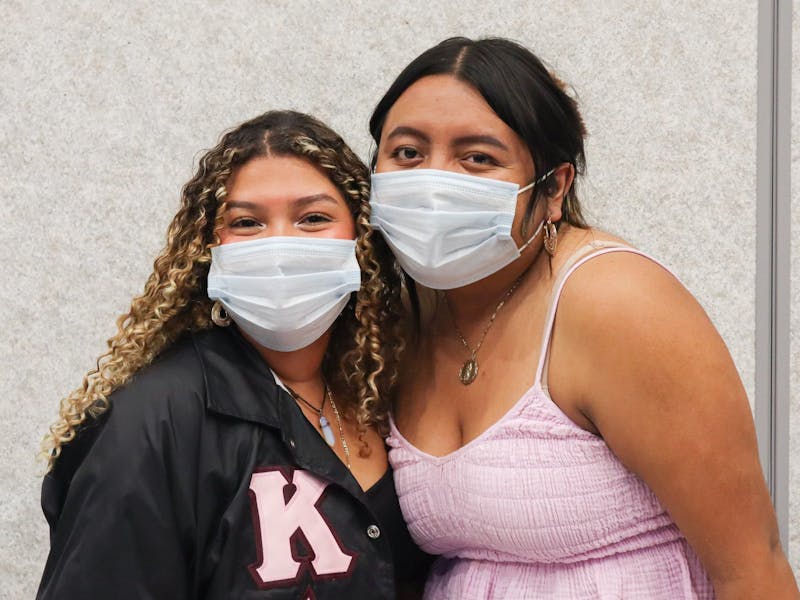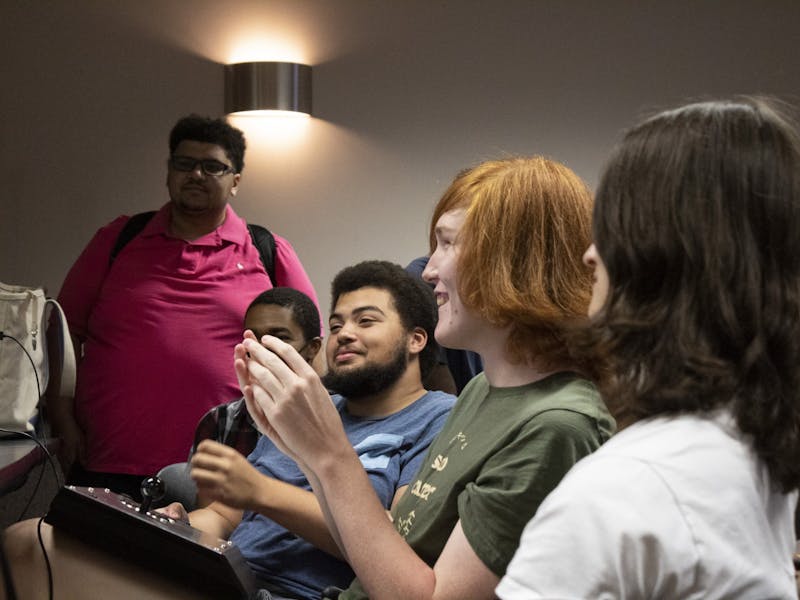Mental health: two words that many of us are aware of, yet few of us talk about. According to the National Alliance on Mental Illness, 1 in 5 adults in the United States will experience a mental illness within a given year. That means that of the almost 35,000 students here at the University of South Carolina, nearly 7,000 of us will suffer from a mental illness within a year’s time. The question is, how many of us will reach out for help?
We acknowledge that mental health is a serious issue that needs to be addressed, yet often we avoid the hard conversation and focus more on the stigma surrounding it.
Why are we marking the state of our mental health as a disgrace? Why are we afraid to utilize the resources that we are given on our college campus? Is it the stigma we are worried about, or our lack of knowledge of the resources that we are offered? More so, is it simply that the marketing of these resources offered are not reaching and connecting to our students?
“Young people are very interested in knowing that there are a lot of resources on campus and they often cite other students,” states Dr. Rebecca Caldwell, USC’s Director of Strategic Health Initiative. However, according to Dr. Caldwell, students often have the mindset that it’s okay to refer a friend to counseling, but when it comes to seeking help themselves, they fear judgment.
Perhaps we fear the idea of accepting our mental state, or perhaps, as Dr. Caldwell stated, we are simply afraid of judgment or the embarrassment of getting help due to this stigma that we have associated with mental health. Dr. Mann, a licensed clinical psychologist and the Director of Counseling and Psychiatry at USC, states that there are multiple steps to stigma.
“I think we have gotten over the hurdle of asking people for help; I think we have to make it okay to know that our friends are getting help and to not feel differently about them,” says Dr. Mann.
The mental health stigma creates an idea of being judged during our quest for mental stability. But let’s consider this: if we are afraid to talk about mental health because of stigma, other people probably are too. It is a never-ending cycle that we have created, when the one thing that needs to be recognized is that it is okay to get help.
Is this stigma the only thing that keeps college students from getting help, or does the lack of knowledge on what resources we are offered factor into this as well? The mental health resources that are offered at USC are being marketed in multiple ways, but are they reaching our students?
When asked if he felt that mental health resources are being marketed enough on campus, Josh Whisnant, a third-year at USC, gave a simple yet complex answer: “I wouldn’t say that there is any marketing at all.”
The resources offered are discussed at New Student orientations, so incoming students can have some information on the resources – but what about students who are upperclassmen or live off campus? Marjorie Riddle Duffie, USC’s public relations and marketing director for Student Health Services says, “I wish that they would give us a mandatory time where we can stand up in front of everyone and just give them a good overview of our services, but they’ve got a lot of people competing for that time.”
Despite this, the marketing team still markets their services in other ways, such as Mental Health Matters, a campaign where counselors talk to students to learn what they would like the university to say about their mental health. They are also launching a podcast called “Hear Me Out,” where two student hosts will interview other students and faculty about their resilience stories.
A few of the other mental health resources that are provided and marketed at USC are individual counseling and psychiatry, dual counseling, group therapy, suicide prevention programs and campus crisis response. One program offered is an online counseling therapist, so the patient never has to walk through the doors of the Student Health Center if they are uncomfortable. So, there are ways to avoid the fear we have of stares and talking.
It seems that the main issue is reaching the students in need of these resources. Yes, they are being marketed, but whether they are reaching all students is another story.
“Trying to reach 35,000 students who are glued to their phones is hard,” Duffie says.
The stigma surrounding mental health should not exist, but it does. Mental health is an illness people will face, and others need to be accepting of them taking care of their well-being. We, as students, are the best marketing strategy, and we can help one another get the help needed, when it is needed.
As said best by USC student, Jake Banner, “Mental health issues don’t discriminate. That’s a big thing to realize when you’re going through whatever you’re going through, and I think that’s something that helped me a lot was realizing that I’m not OK, and I need help.”



